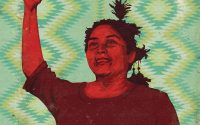Prostitution vs Abortion: legality and vulnerability~ 6 min

By Aline Rossi
Part three of three. Part one: Prostitution vs Abortion: neither a profession nor a crime. Part two: Prostitution vs Abortion: choice and body sovereignty
3. It is not the law that makes prostitution unsafe
It is always a start when someone expresses concern over the need for rights of prostituted people.
However, this question clearly shows that prostitution regulation is talked about as an abstract, purely speculative matter. It is not clearly stated what rights need to be secured and, more importantly, how they would keep women safe when their bodies and sexuality are exposed to anyone with the ability to pay.
It is not the lack of labor rights that places prostituted women in precariousness and danger, but the lack of civil rights.
Legalizing abortion is a matter of civil law – although I ask myself if it will be treated as a matter of labor law as part of the idea of conceiving of prostitution as work.
Is pregnancy a workplace accident? Does it grant compensation? Is abortion a labor right as well?
The illegality of abortion makes it unsafe because it causes it to occur under precarious hygiene and safety conditions. But the gestation itself is not a danger, precarious or insecure. Prostitution is insecure because the vulnerability of the prostituted person facing the violence of the clients is total – not for lack of a special facility, of a different law nomenclature or because the activity does not contribute towards Social Security benefits.
Let us try to picture a concrete scenario: when your “job” is a blowjob, to receive a double penetration or do a gangbang, in what way does contributing to Social Security make it safer?
If women outside prostitution who suffer rape have difficulty in proving it was rape and non-consensual, in what way can a woman whose job it is to have sex prove a rape? Or can we never say that a prostituted woman was raped? How to prove it was an aggression and not part of the job? Not just a service bought by the “client”?
Most importantly, why is it that everything which is seen as sexual harassment, abuse and rape in any other work environment is, for the prostituted woman, considered a service? And how is it that giving it legal recognition as a service will ensure more rights? Especially if, for authorities, she accepted it and was even paid for it – and furthermore, the client is within his rights?
The most common causes of death among prostituted women is femicide at the hands of clients and pimps; and drug overdoses (many turn to drugs to “endure” the work and dissociate from the “service”). Taxes, receipts and a professional card with “sex worker” written on it won’t reduce the murder and aggression risks. How would they be any safer?
Just recently, Siam Lee, a 20 year old young woman who hosted at a massage parlour in South Africa, was sequestered, kept in captivity, beaten, killed and incinerated by a former client. Her body was found days later in a cane field. All because she said no. Siam Lee said she no longer wanted to serve a certain man and was murdered for it.
While the man was standing trial, a group of women prostitution survivors belonging to the Kwanele movement remained at the court’s entrance. They were protesting and demanding that johns be criminalized instead of having prostitution become regulated. Nothing of what happened to Siam Lee could have been avoided by giving her a sex worker legal title and have her pay taxes.
It is not the law which kills prostituted people. Clients kill prostitutes. Pimps kill prostitutes. And the physical and psychological consequences of being a “sex worker” kills prostitutes. To give it another name and a receipt sheet will not change the mentality and way pimps and johns look at women in prostitution. In fact, it reinforces their rights over them.
There are countries where prostitution has been regulated for over 20 years. Why aren’t we looking at their data instead of considering using another generation of women as guinea pigs?
In these countries, street and clandestine prostitution still exists. Luxury brothels proliferate like fast food chains, yet women are still being assaulted and killed.
Sabrinna Valisce, who was an activist for decriminalization and regulation of prostitution in New Zealand, for example, says that after decriminalization things became more unsafe than before. This point was strengthened by Mickey Meji, who was a prostitute for 9 years in South Africa. She was an activist for regulation but today is an abolitionist and leader of a survivors group; and also by Chelsea Geddes, also a survivor and abolitionist activist.
To criminalize demand, on the other hand, places power in the hands of women. She commits no crime by prostituting herself, but the man is commiting a crime beforehand if he decides to pay to acquire sex. What this means is that any slipup on his part is enough for the prostituted person to denounce him. She has the power to act, since denouncing is her decision. He is the guilty party.
The abolitionist project know as Nordic Model or the Sex Buyer Law sees prostitution as a form of discrimination and a human rights violation. It thus becomes much easier and, in fact, mandatory, to create mechanisms to help prostituted people exit their situation and, if they so desire, be offered alternatives to replace their source of income and survival. This is something that, if prostitution becomes naturalized as “a job like any other”, is rendered completely obsolete.
The illegality of abortion makes it a crime for a woman to decide over her own body. The legality of buying prostitution makes it possible for a man to decide over her body. The illegality of abortion makes it unsafe because it causes it to be done in an unsafe manner. The legality of buying makes it unsafe because whatever it is that is done to a woman will be recognized as work or a service.
When the only imaginable horizon for a woman in this capitalist society, is to submit her body for use and sale or to offer some parts of it to the market, either under the cover of a “service” (like prostitution) or as a commodity (like pornography and surrogacy), the proposal coming from the Left can’t be to offer half the working class to neoliberalism. The feminist and revolutionary response can’t be to embrace the capitalist boot stepping on women’s necks.
Either we are for the abolition of all kinds of exploitation and the non-commodification of life, or we are as revolutionary as Trump and his “Grab’em by the pussy” or Bolsonaro with his offer for “whoever wants to come to Brazil to have sex with a woman, you’re allowed to do so”.
Aline Rossi writes in Portuguese at the blog Feminismo com Classe, where she also publishes translated feminist texts from all over the world at a prolific pace.




